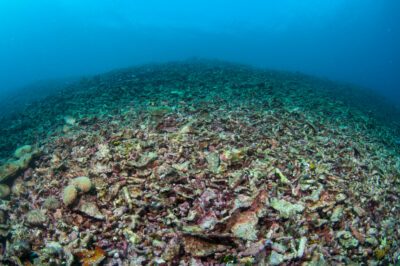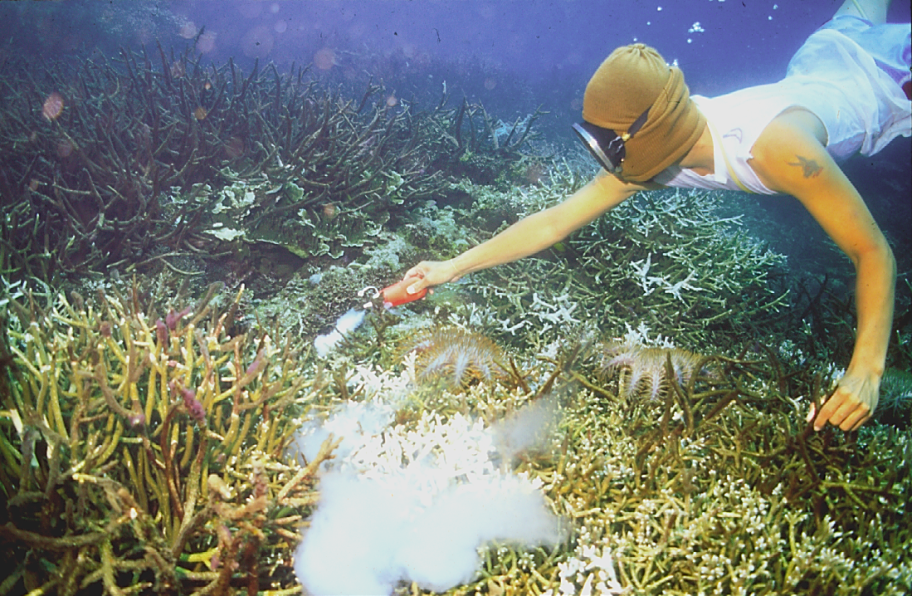
The Philippines, located in the Coral Triangle, is home to some of the richest marine biodiversity on the planet. The region comprises multiple habitats, including reefs, seagrass meadows, and coastal mangrove forests. Close to the river mouths, you might encounter a rare Irrawaddy dolphin. Elsewhere, any one of six species of sea turtles may be swimming about, while over 2,000 species of reef fish, 600 species of coral, manta rays, sharks, eels, and dugongs inhabit these vibrant waters.
However, this ecologically significant region has long been a target for illegal fishing, which harms marine life, destroys habitats, and robs local communities of sustainable livelihoods.
Blast fishing and cyanide fishing are two highly destructive, illegal methods of fishing. Reefs are reduced to rubble by dynamite or other homemade explosives. Entire areas are poisoned with sodium cyanide that kills fish, coral, and other nearby marine species. When local patrol teams encounter this illegal activity, the offenders often toss the proof of their crime overboard and avoid arrest. Without authorities having the proper gear to recover the lost evidence, any hope of conviction is also lost at sea.
What is blast fishing?
Blast fishing, also known as fish bombing or reef bombing, is the practice of using homemade explosives to kill or stun fish. It’s an indiscriminate method of fishing that can harm or kill any animal in the vicinity, from dolphins to sharks to plankton. Not only can the violent blast kill marine life instantly, but it also obliterates coral reefs, reducing vibrant underwater habitats to rubble and wiping out entire marine communities.
What is cyanide fishing?
Cyanide fishing is used to capture live reef fish for the international aquarium trade or to provide live fish to restaurants. When fishers pour a mixture of sodium cyanide into the water, it stuns fish, making them easier to catch. Even though many fish die in the process, the method remains profitable. Its efficiency has led to widespread overfishing and further reef degradation. Cyanide that remains in the water poisons the habitat, affecting countless other species.


WildAid’s role in stopping ocean crime
To stop the destruction caused by blast and cyanide fishing, strong, well-resourced enforcement is critical. That’s where WildAid comes in.
WildAid’s internationally recognized marine enforcement experts are working hand-in-hand with local communities, the Philippine government, and partners like Rare to build a powerful new force for ocean protection. Together, we’re training and equipping 16 community-led patrol teams in two key regions — Southern Leyte and Palawan — who are on the front lines, patrolling coastal waters to deter illegal fishing and safeguard critical marine habitats.
Recently, we joined the Philippine National Police Maritime Group in Palawan to deliver new scuba gear that officers can now use to collect underwater evidence, a key step in holding environmental offenders accountable. We also provided a new patrol boat to the Palawan Council for Sustainable Development, expanding their reach to patrol smuggling routes used to transport all kinds of protected marine species like seahorses and giant clams, as well as endangered land animals such as pangolins, the most trafficked wild mammal in the world.
Without the training and equipment to enforce fishing laws and regulations, entire reef systems could collapse, leading to cascading negative consequences for marine life and human life in the Philippines and around the world.
Your support this World Oceans Day will help provide the resources needed to continue this vital work in the Coral Triangle and beyond. When you give before June 12, your gift will be TRIPLED in impact thanks to a generous donor.
Donate now to triple your impact for our blue planet.
Stay in touch and get the latest WildAid updates.
SIGN UP